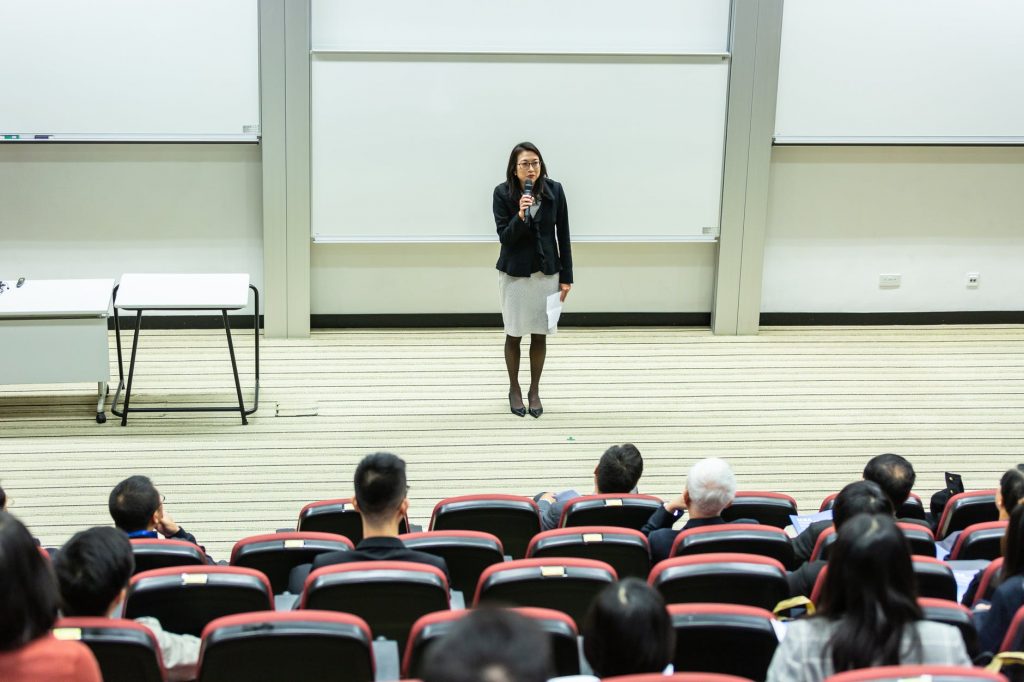It was 2007 when I went up the podium at my Ivy League University for the 3rd time to receive my post-graduate diploma. After 4 years of undergrad and another 4 for my postgrad, I finally got those 3 letters after my name at the tender age of 27. Boy, was I smug, stoked with much gusto by my parents, who bragged to anyone who would listen about their smarty-pants son who graduated from a prestigious Ivy League school and is set to conquer the academic world with his wit and dashing good looks (ok maybe they didn’t mention that last bit).
But after spending pretty much my entire life in school, the realities of, well, the real world kicked in: By the time I had come back from my 3-month backpacking trip across Southeast Asia (courtesy of my parents, who were more than happy to spend for their golden boy), the Great Recession had hit, which meant that the entire academic industry had shifted from a fast-growing business just hungry for more talent into an isolated and insulated place where tenured professors refused to give up their seats out of fear of losing their 401(K).
During this time, I learned some hard truths: most of the professors that I looked up to were, in fact, contingent or temporary employees, with many of them stuck teaching in non-tenure-track, part-time positions for years. This was backed up by data from the Coalition on the Academic Workforce, who found that a majority of their respondents (over 30,000 faculty members across the country) struggled not just to get tenure, but to secure a permanent teaching job.
Eventually, after a couple of years, I landed a job as a Visiting Academic, specifically as a Visiting Assistant Professor. What was supposed to be a 2-year stint became an almost 10-year ‘temporary’ position that saw me getting paid less than what I put in to be where I was.
Did it get better? Of course, it did, but I just wanted to share with you my experience as a Visiting Assistant Professor for the better part of the decade. But first:
What are Visiting Assistant Professors?

Visiting assistant professors, or VAP, are academics that are hired on a temporary basis by a University. VAP’s usually fill in for tenured professors who are on sabbatical or extended leave, and they need a warm body (that’s Ph.D. qualified or its equivalent) to teach their classes. Basically, we’re glorified substitute teachers, but with higher qualification and a mountain of student debt.
Once the Great Recession hit, many of the country’s tenured professors started rescinding their retirement plans, mostly because they were afraid of what life would be like during the recession. It made sense: because of the screw-ups by large financial institutions (looking at you, Goldman Sachs), a lot of hardworking employees saw their 401(K)’s wiped out in an instant, or saw their debts ballooning as banks struggled to make ends meet.
Because of this, and because of the influx of students (2009 saw a whopping 20 million students enter college), Universities around the country struggled to keep up with the demand, hence the need for VAP’s like myself to fill in the gaps.
My Extended Visiting Assistant Professor Gig
Before I left the states for my postgrad break, I was offered a position as a research assistant professor at a prestigious University out on the west coast. By the time I had come back, however, funding for that research project was pulled, and the school had to, unfortunately, retract their job offer. No matter, I thought to myself, I’m sure my great credentials can get me other opportunities.
The reality, however, hit me right in the gut.
I was pretty much jobless for most of 2008, subsisting mostly on side gigs tutoring grad students. I was also publishing papers for my field of study, with my dissertation even being picked up for possible publication. It wasn’t the cushy teaching job I wanted but hey, a book deal isn’t too bad either!
My book was published in September of 2009, to a very lukewarm response. Granted, my field of study is extremely niche, and while having a dissertation published is great on a resume, it wasn’t enough to get me a job in the schools I’ve applied to teach at. Heck, half their tenured faculty had multiple postgrad qualifications, not to mention extensive bibliographies and papers published.
Suddenly, I wasn’t such a hotshot after all.
Finally, in February of 2010, I was offered a visiting assistant professorship at a University out in Kansas that would start in the Fall semester. It was to be a one year gig covering for a tenured professor who was on sabbatical. Again, I would have preferred to teach at my Alma Mater, but they made it clear, in no uncertain terms, that their hiring process had been frozen indefinitely. I took the job and tried to find my groove, which I did: I laid out my lesson plans, brushed up on my subject, and even took a couple of remedial classes on teaching.
When the semester started, I found myself leaning into the work: after all, it’s what I wanted to do. And for the next year, despite the lower-than-expected pay, I did what I loved to do. For their part, I feel like my students and I bonded over our love for our way-too-niche subject (one of them even got me the best gift for college professors: a well-written dissertation and a tweed blazer with leather elbow patches), enough so that I forgot that I was in a non-tenure-track position. But hey, small victories, right?
What started out as a one year gig became an 8-year temp job that saw more hours than I signed up, a smaller paycheck than I had hoped for, and a career path that I had not planned for. During those 8 years, I had tried applying for tenure-track positions in multiple universities, with not much luck. After 8 years, however, a position had opened up in, of all places, my Alma Mater.
All’s Well That Ends Well
In the end, I learned a few things: one, although I left my postgraduate training with all the smugness in the world, it was all useless in the face of reality. The world didn’t care that I had all these plans, I had to work around it. I knew I was smart, but what I didn’t account for was that other people were just as smart, if not smarter.
Two, the academic industry is more cutthroat than you could imagine. Sure, during my Ph.D., my professors would swap horror stories about the job market, but they never made us feel like it would be a jungle out there. Even without the recession, I now realize that my chances of getting hired back then would have been close to, if not level with, my chances when the markets tanked. It wasn’t just my own hubris, it was also sheer bad luck.
And finally, I learned that despite everything life throws at you, always remember why you got into your field of study in the first place, and while you might not get that Ivy League teaching job you want, you might be surprised at how heartwarming a $50 tweed jacket with suede elbows is when it’s gifted by students you’ve inspired.
















